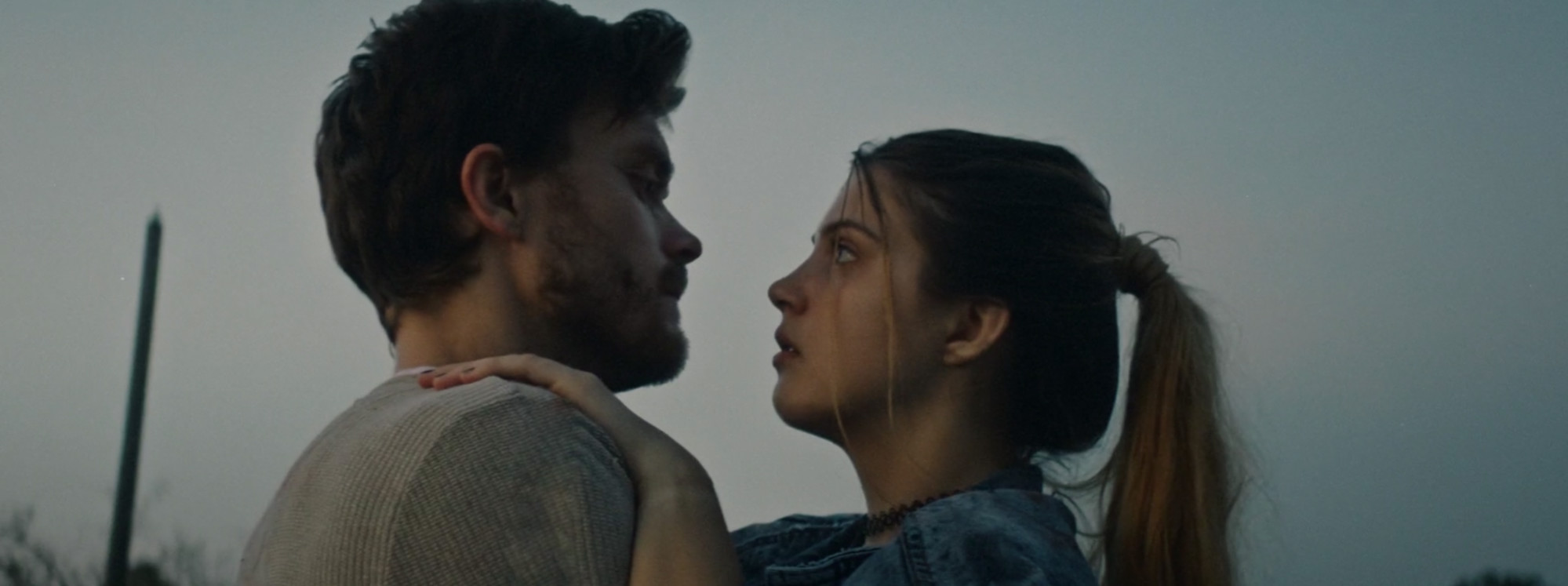
The lovers on the run narrative has always proved to be cinematic gold. There’s something extremely alluring about a flourishing romance in the face of a rejecting society. Such is the case with Eugen Merher’s latest short Marry Me, a Neo-Noir road movie where two lovers find themselves backed into a corner by law enforcement. Merher manages to elevate his narrative above the traditional too through use of powerful and memorable imagery as the pair ascend, physically and metaphorically, during their final collision with the police. DN spoke with Merher about the influences behind his short, shooting in Ukraine, and executing a full production reset in under a minute.
What attracted you to make a film about outsiders?
I feel strangely connected to outsiders. I’m not saying I’m a very helpful, community-oriented person who donates to charity, because I’m really not. I am just fascinated by how people labelled outsiders fight their ways in and out of society. I think these fights are always beautiful as they expose truths both about the outsiders and the society they live in, or whatever it is that they feel outside of.
To a certain extent, I’ve always felt like an outsider myself, even though this is more of a mind-scheme that is still stuck from my youth. I was growing up with two different cultures and two circles of friends that never really got along with each other, a Russian circle and a German circle. Looking back at the other work I’ve done, it’s almost exclusively been about outsiders, which I never actively thought about. But now that I’m thinking about it, it feels like it’s my ‘engine’ of creativity. Almost all characters that I find interesting to watch in real life and jot down in my notes are outsiders.
Marry Me, to me, feels like an anti-road movie about love in the face of antagonistic circumstances. What’s it about to you and what drew you to make it?
For me, this short is a testament to the power of love, even in the most adverse conditions. I have always found myself in a mad search for the meaning of love in my own life, and it hasn’t been easy so far. By making this short, I wanted to follow my gut and find this meaning through imagery instead of words and through my love for visceral filmmaking.
This short is a testament to the power of love, even in the most adverse conditions.
The main image that came to my mind early in the process was a couple performing their wedding dance while being pierced by bullets. Their love for each other in that moment would be so strong that it protects them from crumbling to death. I know, this sounds overly romantic and cliché – and I can’t help but love that idea.
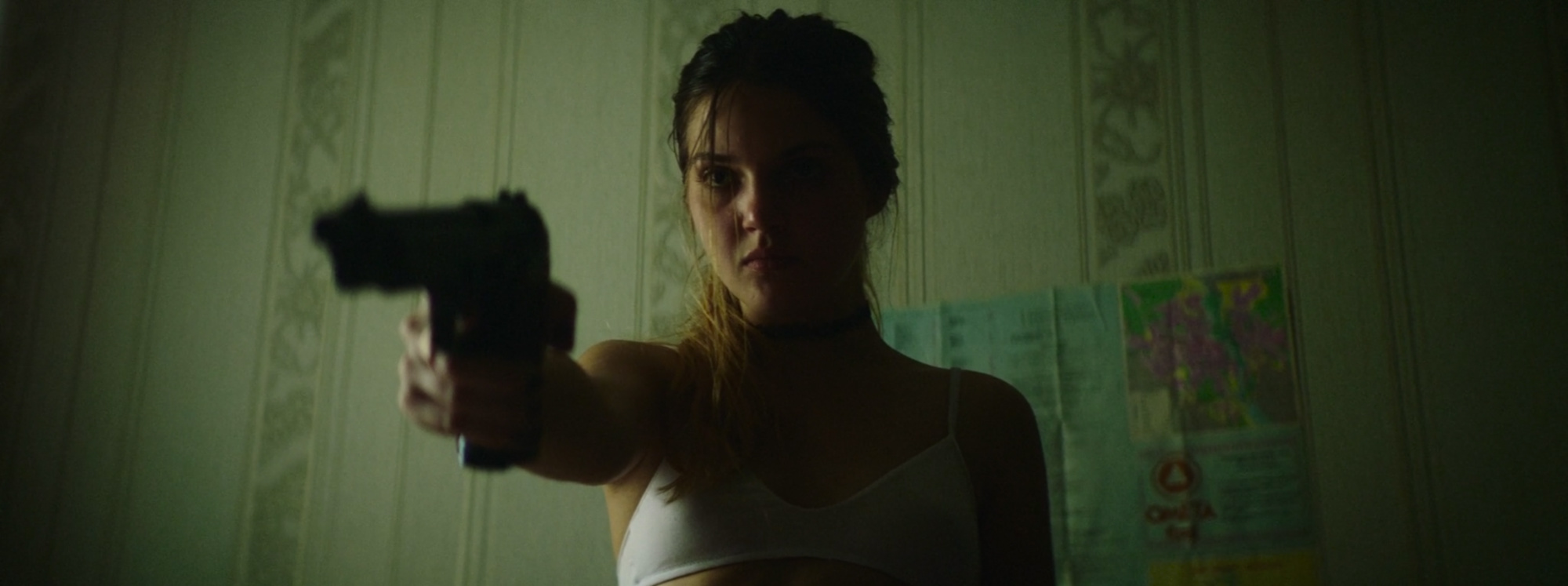
It’s a film with many striking images, which others stand out to you the most?
One of my favourite moments in the film is when Masha talks in a rage about a burger and violently tosses it out of the car, while Vadik is simply staring at her cracked lips, her mad eyes – helplessly falling in love. Seeing beauty in someone’s ugliest moments means true love for me, I think.
Were you always keen on setting it in Ukraine?
The Eastern European setting (Kyiv, Ukraine) came as a natural idea to us for this story because it’s close to where I grew up and I wanted to explore this theme with local actors in my mother tongue – Russian.
Did you draw from any classic road movies when developing your concept?
I am a big fan of road movies. Thelma & Louise, Paris, Texas, Little Miss Sunshine – I would even consider The Professional by Luc Besson (one of my all-time favourite movies) to be a road movie, given that Leon and Matilda are always on the run in New York City. I love it when characters have to escape and adapt to a sudden change of life. They have no time to overthink every action, they simply have to follow their instincts.
In all honesty, I’m not really a film reference kind of director. For sure, ‘Soviet Bonnie & Clyde’ was a catchphrase we used a lot during the making of Marry Me, but I always try to follow my gut when looking for new ideas. I can’t deny of course that I’m influenced by what I watch, but I don’t try to reference it or subvert it on purpose.
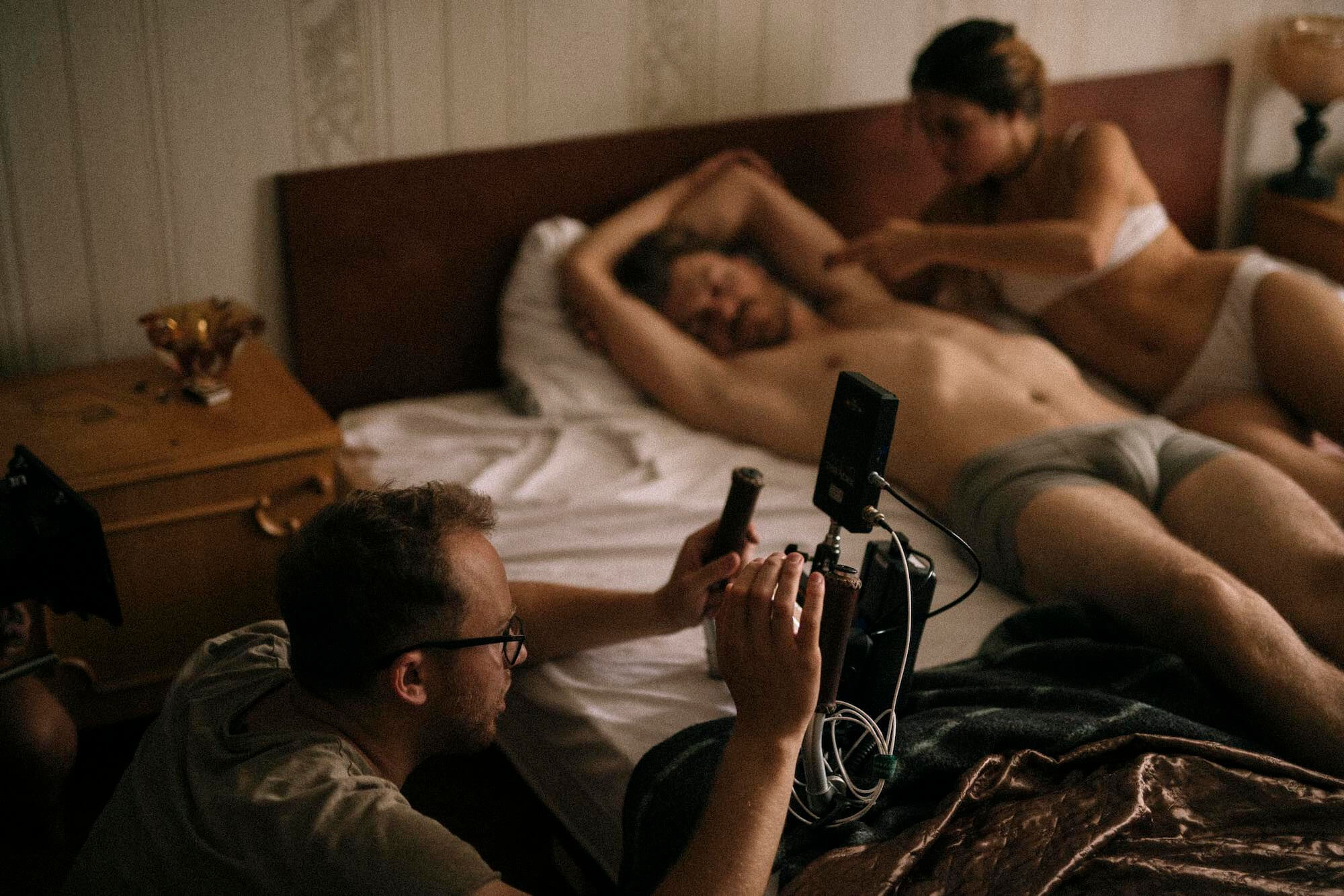


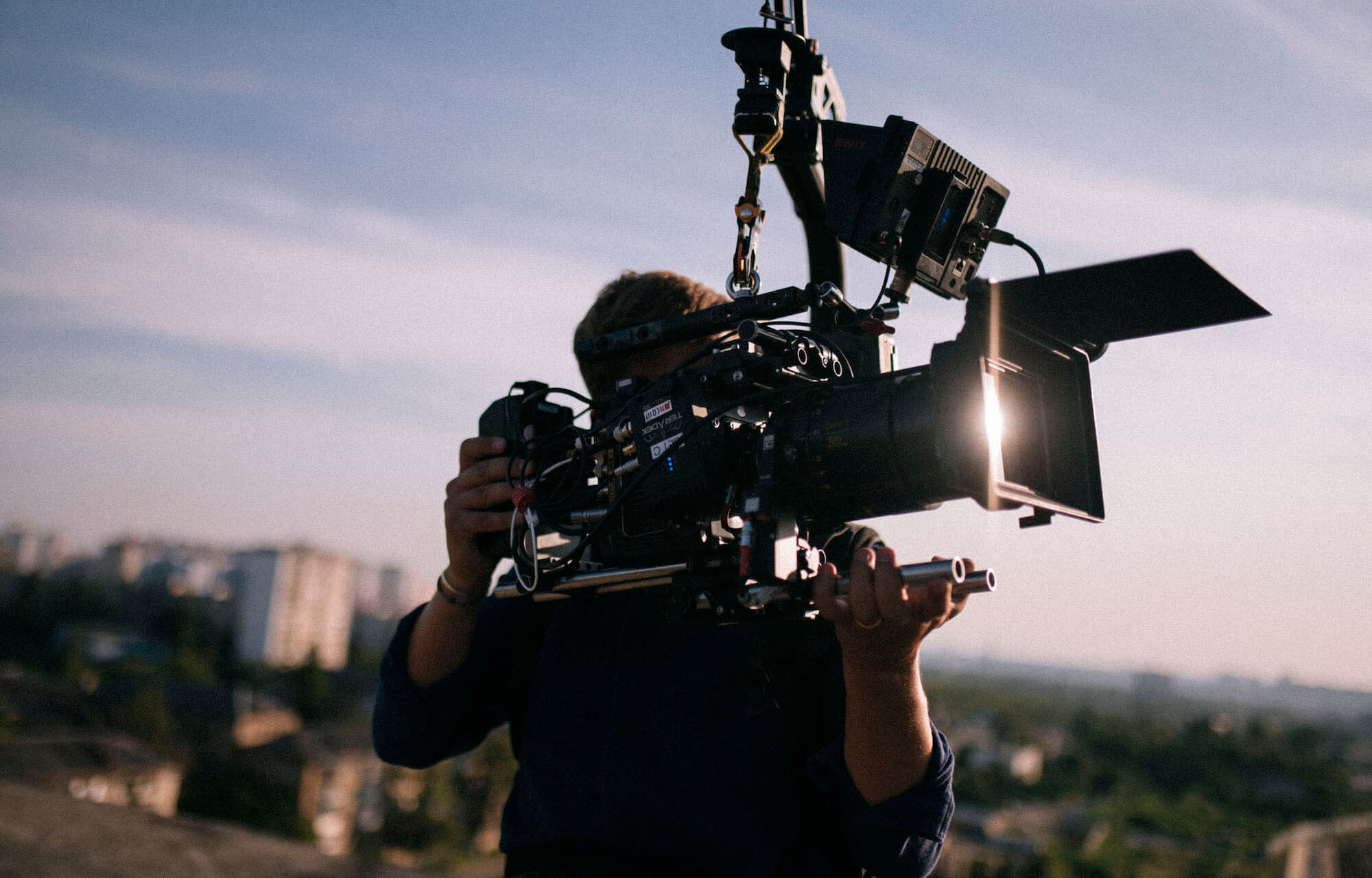
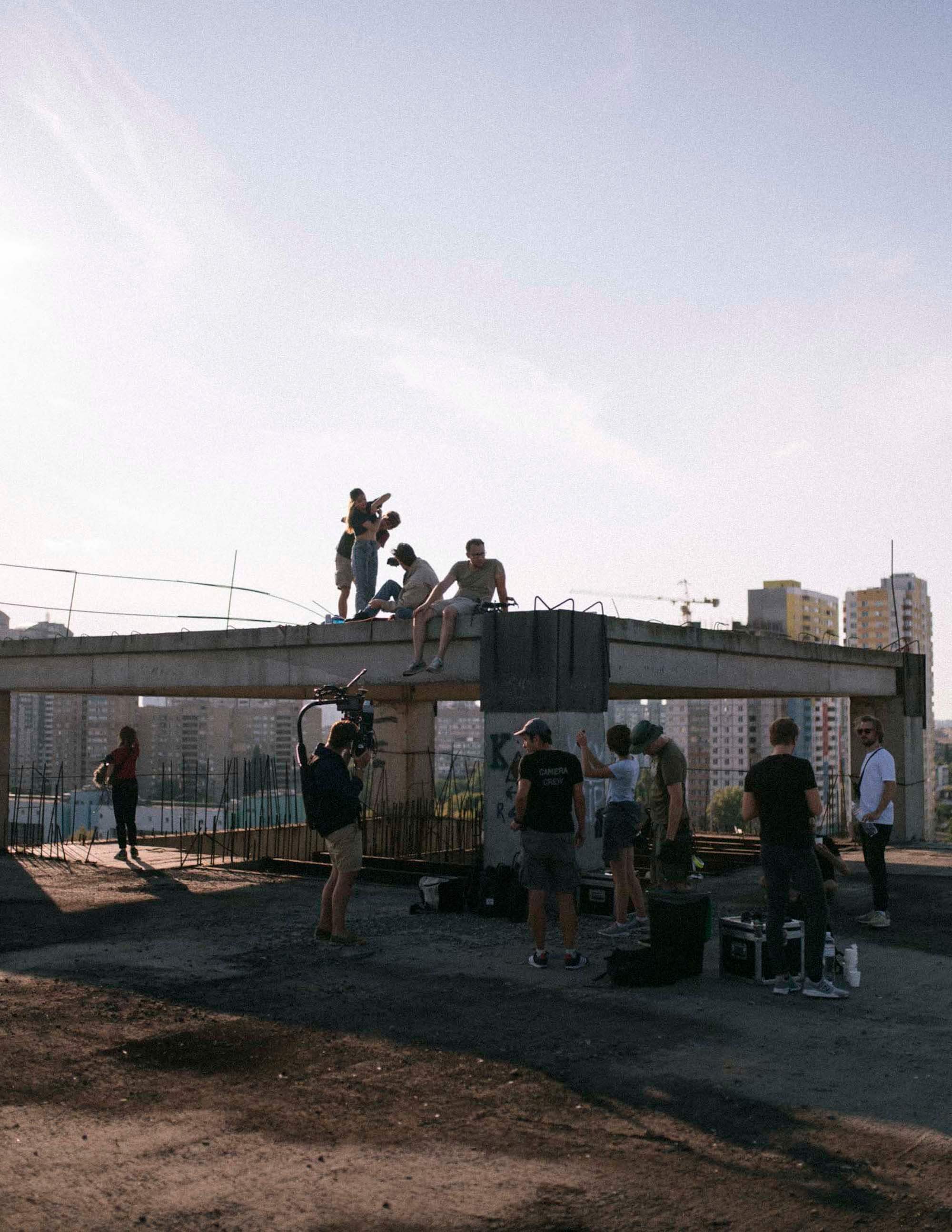

And how did you find executing a shoot in another country?
The shooting process was an adventure in itself, given that we didn’t have a service production and tried to produce everything on our own. Although we did have some support from Radioactive Films and financial support from Stink, the actual production load was handled by Philip Chrobot, the producer who I’ve been working with during my time in film school and beyond. Our production ‘office’ was a cafe right outside our Airbnb. We would basically invite every crew member over for a coffee and plan the project with me translating from Russian to German / English.
We had a maximum of one minute for the actors to do a full reset of their costumes and to rewire their SFX squibs – it felt like a formula one pit stop.
What was the biggest challenge you faced during your production? There are some impressive set pieces!
The trickiest challenge was to shoot the final scene within a blue hour time window of 45 minutes. Because everything had to work out perfectly and we only had one shot, we used the whole shoot day to do test runs, set up the police vehicles, the stunt crane for the flotation, the SFX equipment and the Technocrane. When blue hour kicked in, the craze began. We had a maximum of one minute for the actors to do a full reset of their costumes and to rewire their SFX squibs – it felt like a formula one pit stop. But thanks to the amazing crew everything went smoothly and we managed to shoot the scene right before it got too dark.


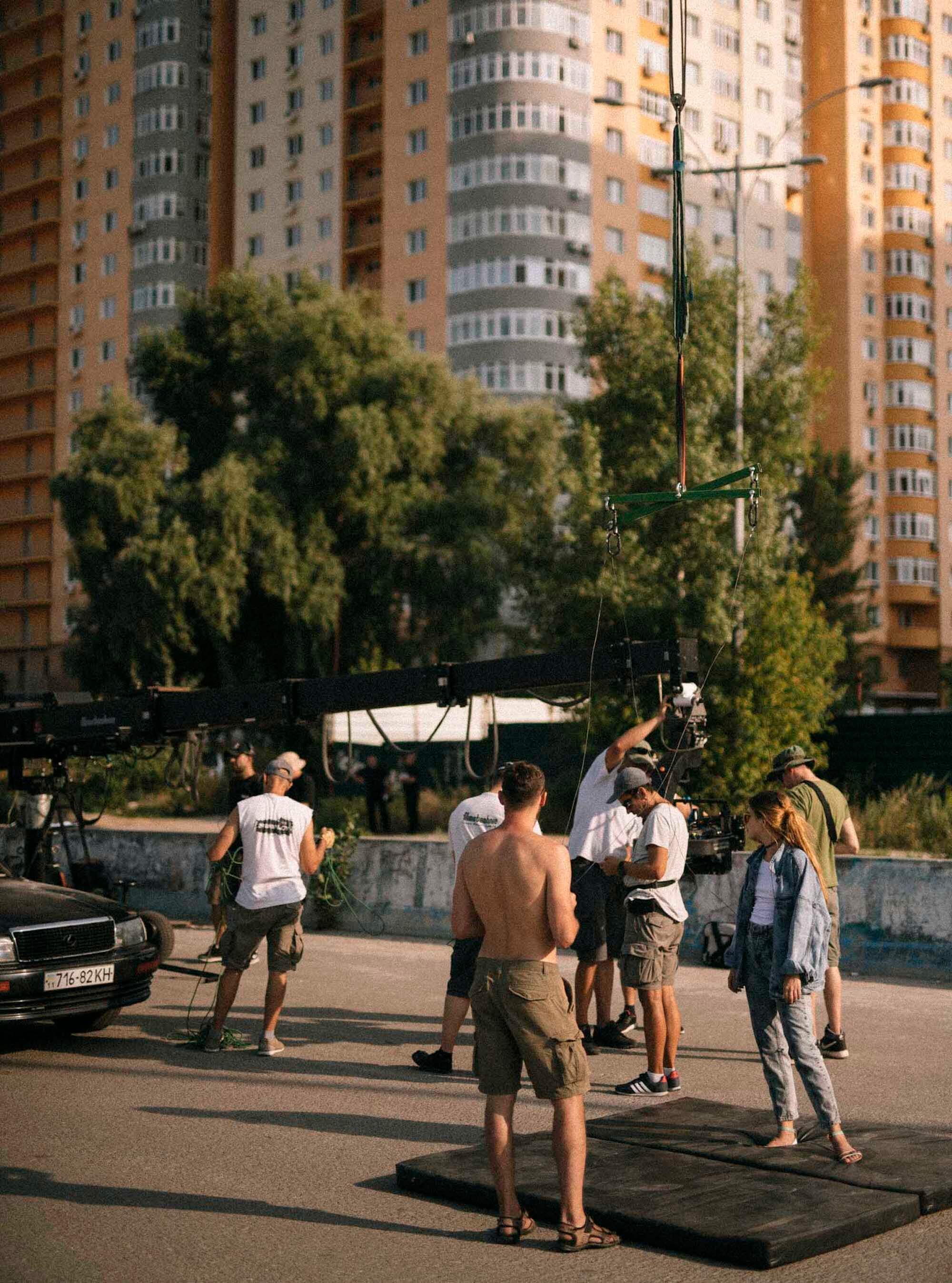
What were you looking for in your actors when casting Marry Me? What was it about Yelyzaveta and Pavel that caused you to choose them?
For Masha, I wanted to find someone who could portray an innocent, almost child-like character with a deep scar on her soul. Someone who you want to take into your arms, even if they have just killed somebody. Yelyzaveta Tsilik was one of the first actors from Kyiv to approach us directly after we posted the casting call on various Ukrainian Facebook groups. We had many great local actors auditioning (organised by our local Casting Director Kseniya Dezera), but Yelyzaveta brought along so much charisma coupled with an inexplicable sense of mystery that it was a no-brainer to cast her.
Vadik’s role was much harder to cast. I was looking for an older soul trapped in a young body. Someone who could convincingly put his own life into perspective as a dying man. I wanted Vadik’s character to be someone who has taken a backseat in his own life, a deeply lost soul that gets reanimated through the power of love. There were two types of actors that auditioned for this role: Young, rebellious teenagers and sensitive, older guys – and both of these types didn’t really work. The rebellious teens were too young-spirited and I simply couldn’t buy them giving life advice to the (probably older) audience. The sensitive, older guys were ‘too’ sensitive, which gave the film a too realistic feel and excluded any sense of irony.
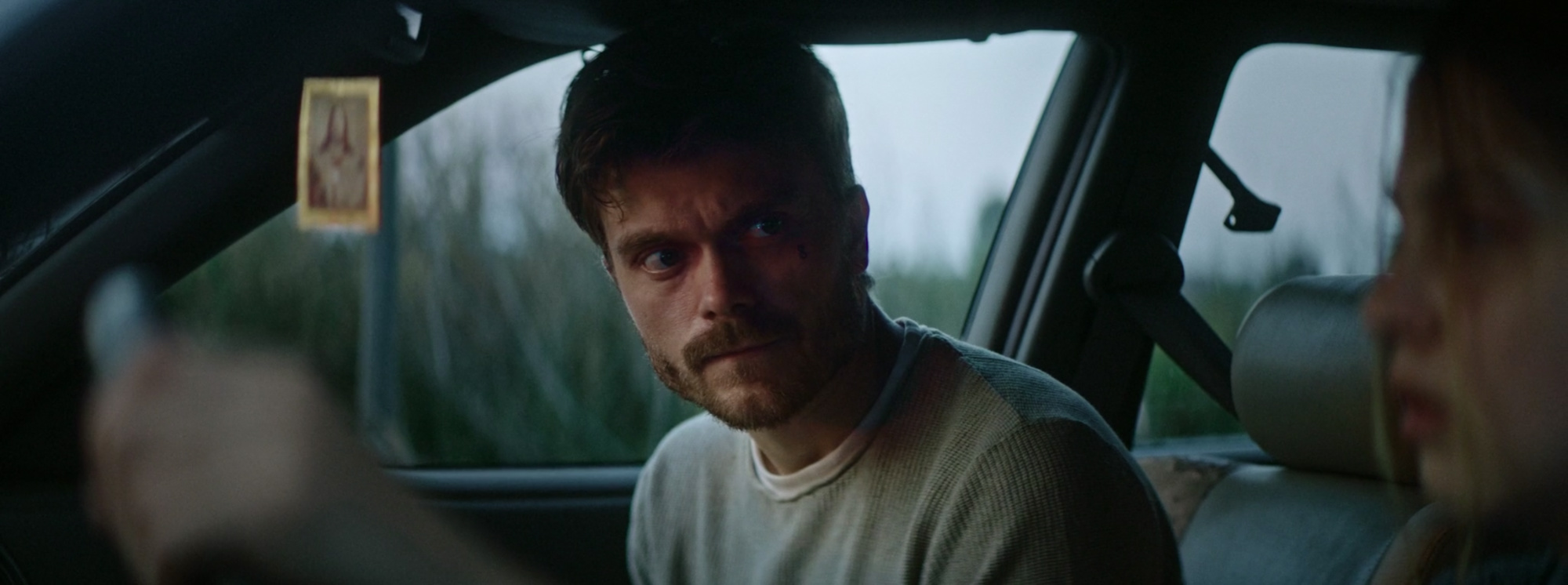
Pavel Aldoshyn was a great find and the perfect balance of both types. Our Casting Director Kseniya knew him from feature film projects and he combined this grown maturity and childlike curiosity that we needed for Vadik’s character. He also had a YouTube channel where he would post deeply melancholic songs that he wrote and performed himself, which inspired the tone of the voiceover of the short.
Lastly, are you working on anything new right now?
We are currently working on another short film that we will release in summer 2021, called The Bowling Ballad. We shot it in the U.S. right before lockdown.


